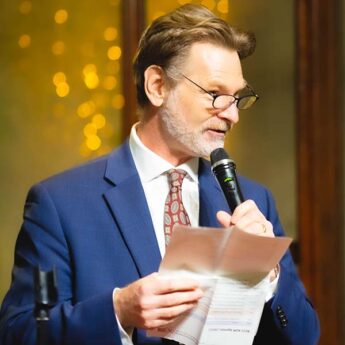The Rugby World Cup (RWC) burst onto television screens around the globe this month, and the atmosphere in stadiums throughout Japan has been crackling with energy and excitement. For a good many fans—die-hard, occasional and new alike—the thrill of the contest has been contagious.
Rugby is a physical game—attrition interspersed with moments of dazzling dexterity and explosive running. Those lucky enough to have match-day tickets or watch games on TV will also attest to the intensity of the bone-shuddering tackles on display, which seems to be harsher than ever. Players continue to get heavier, faster and stronger as conditioning improves.
For former players and enthusiastic fans alike, the urge to return to the fray can be overwhelming. A sober assessment though of one’s current physical condition is normally enough to put paid to such bravado, as age inevitably begins to catch up with us all!
Shared challenges
Ageing is something, of course, that presents challenges for all nations. These challenges are particularly acute for developed countries, such as Japan and the UK, with their top-heavy demographic structures—an increasingly large number of elderly people with comparatively fewer young, economically active persons to support them.
In tackling these challenges, Japan and the UK have much in common. Both are blessed with universal healthcare systems, and both share a commitment to ease the pressure brought on by ageing through the proliferation of digital technology.
It was heartening, therefore, to see the launch last month of a report entitled Capitalising on Japan’s Digital Healthcare Economy During this Era of Ageing Societies, that highlights opportunities for Japan–UK health tech collaboration. Funded by the government of Japan and authored by Professor Sudhesh Kumar of Warwick University Medical School, the report identifies potential benefits leading to improvements in the safety, quality and effectiveness of healthcare, the earlier diagnosis of disease, and the development of new medicines and treatments.
Chamber support
In line with such opportunities, the British Chamber of Commerce in Japan (BCCJ) was delighted this month to support a seminar on the application of technology to address the challenges of healthy ageing. Taking place on 1 October in Kobe, in the presence of Professor Tasuku Honjo, winner of the 2018 Nobel Prize for Medicine (and organised in collaboration with the Kobe Biomedical Innovation Cluster), the seminar featured presentations from leaders in health tech fields. These included important investors in the UK such as Japan’s Sysmex Corporation, the owner of Oxford Gene Technology Limited (a former University of Oxford start-up).
In closing, I hope that BCCJ members will continue to enjoy the rugby on offer this month—in all its forms. In parallel to the RWC, matches featuring teams representing Japan and the UK are taking place at the World Wheelchair Rugby Challenge in Tokyo, and also in a blind rugby test match series in Kumagaya, Saitama Prefecture. Integrity, respect, solidarity, passion and discipline—these are the common values of rugby that will be on display in abundance at all these games. The depth and pervasiveness of these values across the different codes is what makes rugby so special. Different rules, common culture, one sport. That’s what unites its players and fans. Enjoy!

